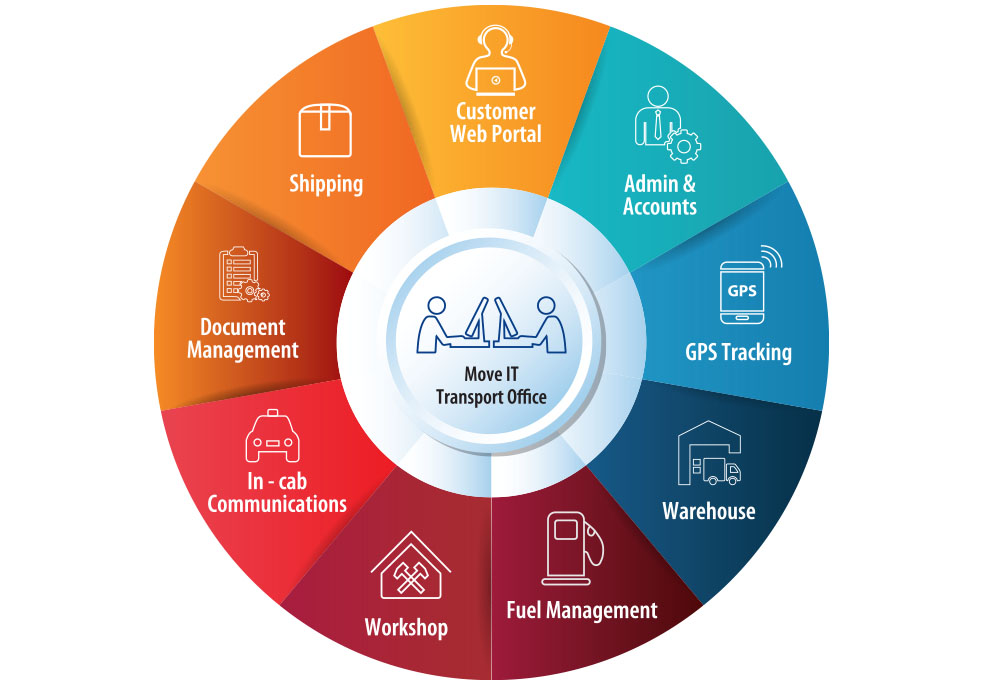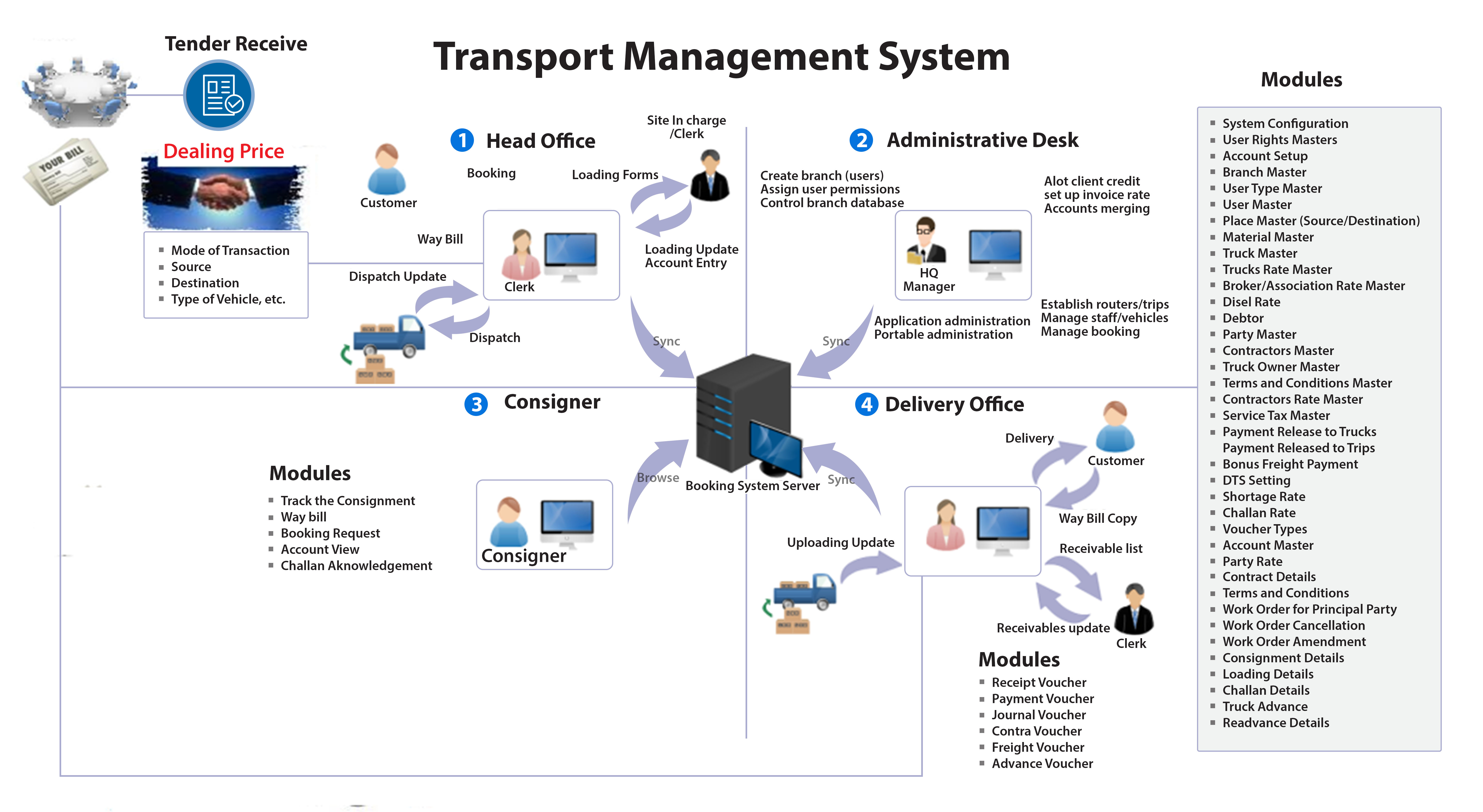
Compare product reviews and features to build your list

Case Study
- Transport Management System (TMS)
- Human Resource Management System (HRMS)
- E-Procurement Management System
- Container Management System
Transport Management System is a software application designed to manage and optimize inbound or outbound transportation operations. Consequently there is greater emphasis on cost, knowledge management and culture. Transport Management System can shift transaction processing to the end users who actually use the materials or goods, freeing up supply management personnel for strategic value-creation work through effective deployment of Transport technology.
Objective
The main objective of this application is to automate the complete operations of the goods transporter office. In current system all work is getting done manually. User have to manage many things so it is very difficult to manage this business doing work manually. Using this system user can automate many transport operation like billing, tracking payments, creating report etc. Using this system keeping records of transportation is easy. User can find any old records in few clicks. User can also generate old delivery reports and other report easily. They need maintain hundreds of thousands of records. Also searching should be very faster so they can find required details instantly.
Competitive Analysis
- User friendly
- Reliable and Secured
- Self-Service with a portal and reporting/analytics
- Personnel Administration
- Compensation management
- Time and route management
- Multiple Search Facilities
- Easy to install and implement in the existing system
Solution
Proposed system will automate all the work done manually in existing transport system. It will store all the records of goods delivery. Using this system user can online check rates of transportation and routes to the destination. User can also manage billing operation of transportation. This system provide the basic components of a shared information system to support the collaboration, rates, routes, roles, transaction sets, documents, and information exchanged to facilitate the booking, execution, and settlement of any type of transportation movement.
TMS Advantages and Benefits
Planning and decision making – TMS will define the most efficient transport schemes according to given parameters, which have a lower or higher importance according to the user policy: transport cost, shorter lead-time, fewer stops possible to ensure quality, flows regrouping coefficient, etc.
Transportation Execution – TMS will allow for the execution of the transportation plan such as carrier rate acceptance, carrier dispatching, and EDI.
Transport follow-up – TMS will allow following any physical or administrative operation regarding transportation: traceability of transport event by event (shipping from A, arrival at B, customs clearance, etc.), editing of reception, custom clearance, invoicing and booking documents, sending of transport alerts (delay, accident, non-forecast stops.)
Measurement – TMS have or need to have a logistics key performance indicator (KPI) reporting function for transport.
Why Transport Management System (TMS)?
Because it dramatically reduces transportation complexity and integrates business and logistics throughout your network.
- Use the Latest technologies to streamfine and integrate your transportation management processes
- Provide executable transportation plans that are cost efficient and compliant with customer requirements
- Consolidate and optimize all shipments - inbound, outbound, domestic, and international
- Strategically purchase or see freight capacity with centralized order management
- Improve transportation logistics to boost on-time deliveries and customer service leaves
- Handle large volumes of transportation and logistics data for state-of-the-art analysis and planning


